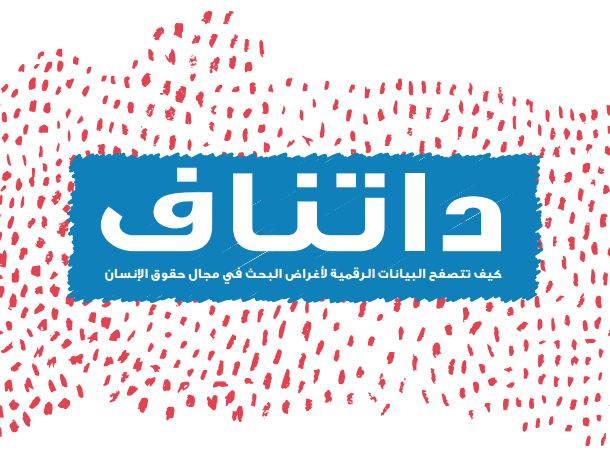SJAC – In the end of March 2017, in Brussels, human rights and technology organizations convened at RightsCon to hear about the latest developments at the intersection of the Internet and human rights. At the same time, a collaborative effort between Amnesty International, Benetech, and The Engine Room released the Arabic version of DatNav: How to navigate digital data for human rights research. DatNav was created in May 2016, and brings together 70 leaders of the human rights, technology, and data communities representing over 40 organizations. The translation of DatNav into Arabic is made possible by Meedan, a group building digital tools for global journalism and translation.
The translation of DatNav gives Syrian civil society groups greater access to information about the benefits and limitations of a variety of digital tools. DatNav Arabic also provides advice on how groups with limited resources can still leverage digital data in their documentation work. The guide, however, is not a replacement for a sound documentation methodology. Rather, DatNav unlocks the ability of documentation groups to understand how digital data can contribute to information about human rights violations, including by strengthening the veracity of traditional documentation methods like interviews.
DatNav is not only a valuable resource for civil society; when the UN’s new International, Impartial, and Independent Mechanism (IIIM) begins developing its methodology for building case files through documentation collection and analysis, it will be confronted with an enormous challenge given the large volume of information that has emerged from Syria and the variety of digital resources available, including satellite imagery, social media data, and telephone records. Given that the IIIM’s mandate is broader than the UN Commission of Inquiry on Syria (COI-Syria), many groups have suggested that the UN create a technology task force for the IIIM to assess the different digital tools available. It is also critical that the IIIM reach out to existing documentation groups to understand what types of data have been collected to date and how to prioritize its collection and analysis in order to complement what has already been achieved.
If Syrian documentation groups want to increase the likelihood that their data will be useful in the IIIM’s case files and international prosecutions, their methodological frameworks for verifying, securing, and storing digital data should be sound. DatNav can help groups think through many of these concerns, although it does not prescribe exact solutions. While DatNav Arabic has the potential to equip Syrian civil society groups with knowledge of the options, each group must decide what is best for them and develop a strong methodological foundation for collection and analysis accordingly.
DatNav is also available in Spanish and English. To express interest in translating DatNav into other languages or to learn more about the DatNav project, contact The Engine Room at [email protected]. For other information or to provide feedback, please email SJAC at [email protected].





